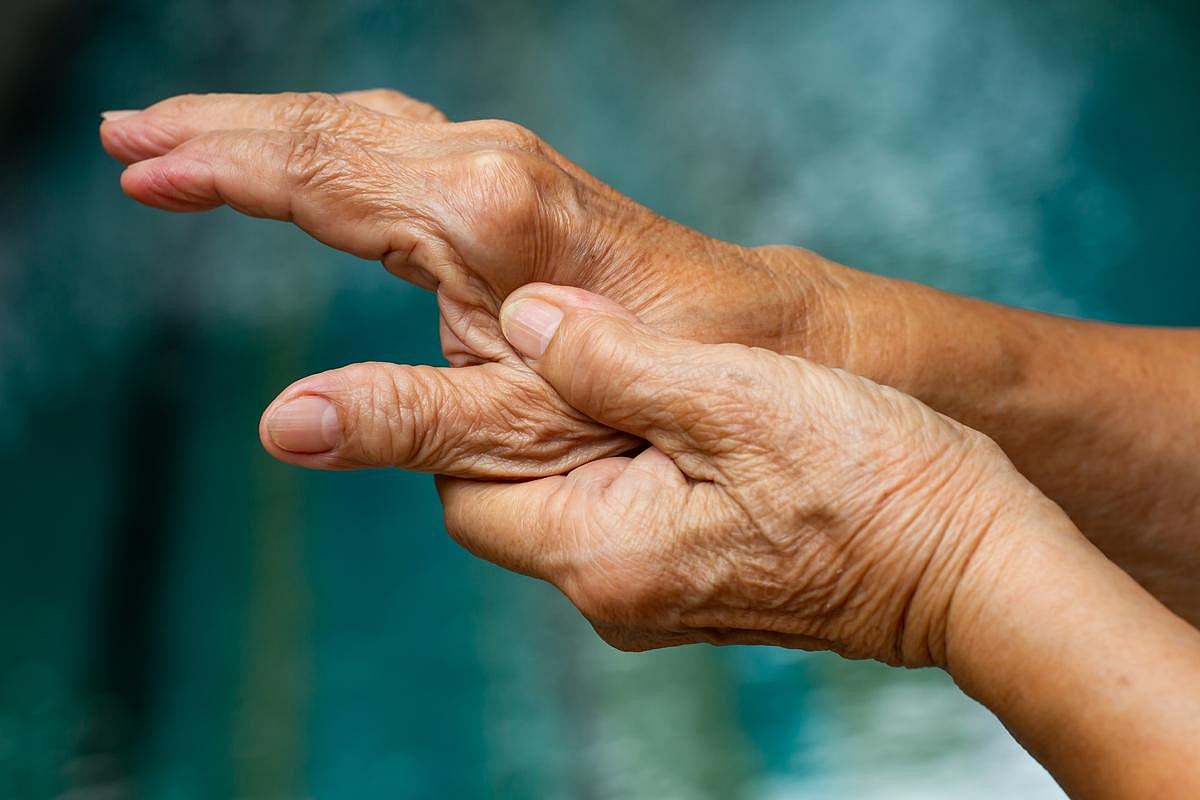Get Healthy!
Staying informed is also a great way to stay healthy. Keep up-to-date with all the latest health news here.
30 Sep
Gen X and Baby Boomers Addicted to Ultra-Processed Foods, Study Finds
1 in 5 women and 1 in 10 men from Generation X and the tail end of the Baby Boom meet the criteria for addiction to ultra-processed foods, researchers say.
29 Sep
Living With a Dog (But Not a Cat) May Lower Babies’ Risk of Asthma
A new study finds babies exposed to a common dog allergen are nearly 50% less likely to develop asthma by the age of five. But the same benefit isn’t seen with cats.
26 Sep
Study of the World’s Oldest Person Reveals Secrets to Longevity
Researchers unlock the molecular secrets behind Spanish supercentenarian who lived 117 years free of cancer, heart disease, and dementia.
Heart Attack, Stroke Almost Always Foreshadowed, Study Says
Nearly everyone who suffers a heart attack, stroke or heart failure had at least one warning sign that cropped up years before, a new study says.
More than 99% of patients had one or more risk factors prior to their heart emergency, including high blood pressure, elevated cholesterol, poor blood sugar control or smoking, researchers report...
- Dennis Thompson HealthDay Reporter
- |
- September 30, 2025
- |
- Full Page
Companions 'Untapped Resource' For Health Care Visits, Poll Finds
Following doctor's orders may not be as easy as it sounds, especially when patients are alone in the exam room. Middle-aged folks and seniors mostly go it alone to a doctor’s appointment, a new poll shows, even though those who bring a companion report it's helpful.
Just under 2 in 5 people 50 and older (38%) said another adult has g...
- Dennis Thompson HealthDay Reporter
- |
- September 30, 2025
- |
- Full Page
AI Can Predict Which Kids With Asthma Face Higher Odds Of Respiratory Infections, Pneumonia
A newly developed AI tool may help predict which kids with asthma are at higher risk for severe complications like respiratory infections and pneumonia, researchers say.
A subgroup of kids identified by the AI tool developed pneumonia more than twice as often as other children with asthma, researchers recently reported in the Journal o...
- Dennis Thompson HealthDay Reporter
- |
- September 30, 2025
- |
- Full Page
Patients With Severe Obesity Face Medical Discrimination, Study Says
People with severe obesity are likely to face discrimination when seeking health care, with many clinics outright refusing to see them, a new study says.
About 2 in 5 (41%) of clinics refused to schedule an appointment for a hypothetical patient weighing 465 pounds, according to findings published Sept. 29 in the Annals of Internal Med...
- Dennis Thompson HealthDay Reporter
- |
- September 30, 2025
- |
- Full Page
Robot-Guided Device Reaches Tumors Deep In The Lungs
A cutting-edge robot-assisted bronchoscope can reach very small tumors growing in the lung’s deepest recesses, according to clinical trial results presented at a European Respiratory Society meeting in Amsterdam.
The device uses a specialized CT scanner to find tumors buried deep in hard-to-reach places of the lung, researchers said....
- Dennis Thompson HealthDay Reporter
- |
- September 30, 2025
- |
- Full Page
Frozen Meals Sold at 3 Chains Linked to Listeria Outbreak
Federal health officials have expanded their probe into a listeria outbreak that has claimed four lives, and affected at least 20 people.
The investigation, which first focused on premade chicken pasta meals sold at Walmart and Kroger, is now looking at a similar product sold at Trader Joe’s.
The outbreak, which has spread acro...
- Deanna Neff HealthDay Reporter
- |
- September 29, 2025
- |
- Full Page
Doctors Warn Against Mouth Taping During Sleep
Taping your mouth shut before bed may seem like a quick fix for better sleep, but doctors are raising serious alarms about this viral social media trend.
While devotees claim it can improve sleep and reduce snoring, health professionals say the practice is unproven and comes with significant risks, according to The Associated Pre...
- Deanna Neff HealthDay Reporter
- |
- September 29, 2025
- |
- Full Page
Kennedy Says FDA Reviewing Safety of Abortion Pill Mifepristone
The U.S. Food and Drug Administration (FDA) is reviewing the safety of mifepristone, a drug used in medication abortions for 25 years, amid a push from conservative state attorneys general and anti-abortion groups.
The announcement was made in a letter from Health and Human Services Secretary Robert F. Kennedy Jr, according to CB...
- Deanna Neff HealthDay Reporter
- |
- September 29, 2025
- |
- Full Page
In-Home Gun Deaths of Children Have More Than Doubled
In-home firearm homicides of children and teenagers have more than doubled since 2010, according to a new study.
Nearly a quarter of children and teenagers killed by guns died in their own homes between 2020 and 2021, including two-thirds of child victims 12 and under, according to findings published Sept. 26 in JAMA Surgery.
<...- Dennis Thompson HealthDay Reporter
- |
- September 29, 2025
- |
- Full Page
TikTok For Sex Advice? Check The Source, Study Suggests
Teenagers and young adults turning to TikTok for sexual health advice would do well to make sure videos are produced by qualified health professionals, a new study says.
More than 20% of sexual health-related TikToks created by non-medical influencers contained inaccurate info, researchers reported Sunday at the American Academy of Pediatr...
- Dennis Thompson HealthDay Reporter
- |
- September 29, 2025
- |
- Full Page
Golf Cart Injuries On The Rise Among Kids
More kids are being hurt in golf cart accidents, a new study says.
Golf cart injuries among children have steadily increased over the past three years, researchers reported Sunday at the American Academy of Pediatrics’ annual meeting in Denver.
Nine out of 10 kids injured are boys, and nearly half are younger than 12, researche...
- Dennis Thompson HealthDay Reporter
- |
- September 29, 2025
- |
- Full Page
Hidden Signs Of Rheumatoid Arthritis Found In Blood Long Before Diagnosis
An invisible storm might rage for years inside the bodies of people at risk for rheumatoid arthritis, prior to any joint pain occurring, a new study says.
These folks experience dramatic immune system changes long before they feel symptoms, researchers reported in the journal Science Translational Medicine.
“Overall, w...
- Dennis Thompson HealthDay Reporter
- |
- September 29, 2025
- |
- Full Page
Most American Kids Rely On Medicaid, CHIP Insurance
Most American kids rely on federal health insurance plans like Medicaid or the Children’s Health Insurance program at some point during their childhood, a new study says.
About 61% of U.S. children, or 3 in 5, have been covered by a federal insurance program by age 18, researchers reported Sept. 24 in the Journal of the American ...
- Dennis Thompson HealthDay Reporter
- |
- September 29, 2025
- |
- Full Page
Dogs (But Not Cats) May Protect Against Childhood Asthma, Study Says
Babies who grow up around dogs might be less likely to develop childhood asthma, a new study says.
However, they don’t get the same protection from growing up around cats, according to findings presented Sunday in Amsterdam at a meeting of the European Respiratory Society.
“We found that, while cat allergens showed no ass...
- Dennis Thompson HealthDay Reporter
- |
- September 29, 2025
- |
- Full Page
Mouse Study Offers Cautionary Tale About The Keto Diet
It sounds counterintuitive: Eat more fat and lose more weight.
But it’s the underpinning of a keto diet — a controversial eating regimen designed to retrain the body to rely on something other than sugar for energy. The regimen is rich in meat, eggs, high-fat dairy and oils.
"I think a lot of people look at a ketogenic d...
- Carole Tanzer Miller HealthDay Reporter
- |
- September 28, 2025
- |
- Full Page
Wildfires in Western U.S. Play a Role in Global Warming, Research Shows
Wildfires are an increasingly common feature of life in American West, and researchers are working overtime to understand how the resulting smoke affects air quality, human health and climate change.
"Wildfires do not emit ozone directly," Jan Mandel, a professor emeritus of mathematics at University of Colorado Denver, said in a news rele...
- Carole Tanzer Miller HealthDay Reporter
- |
- September 27, 2025
- |
- Full Page
Tylenol Refutes Old Post as Pregnancy Safety Debate Resurfaces
The maker of Tylenol is pushing back against resurfaced claims that its popular pain reliever is unsafe for pregnant women.
Kenvue, the parent company of Tylenol, issued a statement Thursday after an old and now-deleted 2017 social media post resurfaced suggesting it did not recommend “any of our products while pregnant.” ...
- I. Edwards HealthDay Reporter
- |
- September 26, 2025
- |
- Full Page
New World Screwworm Parasite Detected in Northern Mexico Near U.S. Border
A dangerous parasite once eliminated in the United States has been detected in northern Mexico, close to the U.S. border.
Mexico’s agriculture ministry confirmed Sunday that an 8-month-old cow in Nuevo León tested positive for New World screwworm. The animal was part of a shipment of 100 cattle from Veracruz, but only one show...
- I. Edwards HealthDay Reporter
- |
- September 26, 2025
- |
- Full Page
Gene Therapy Slows Huntington’s Disease in Early Trial
A new gene therapy has shown promise in slowing the progression of Huntington’s disease, according to early trial results released Wednesday.
In a Phase 1/2 study, patients given a high dose of UniQure’s experimental therapy AMT-130 experienced a 75% slowing of disease progression after three years, the company said. The therap...
- I. Edwards HealthDay Reporter
- |
- September 26, 2025
- |
- Full Page
Sprout Organics Widens Recall of Baby Food Pouches for Possible Lead
Sprout Organics has widened its recall of 3.5-ounce Sweet Potato, Apple & Spinach pouches because some lots may contain elevated levels of lead.
The U.S. Food and Drug Administration (FDA) said the recall, first announced Sept. 16, now covers additional lots sold online at Walgreens and through independent retailers in 28 states.
- I. Edwards HealthDay Reporter
- |
- September 26, 2025
- |
- Full Page
















.jpg?w=1920&h=1080&mode=crop&crop=focalpoint)




